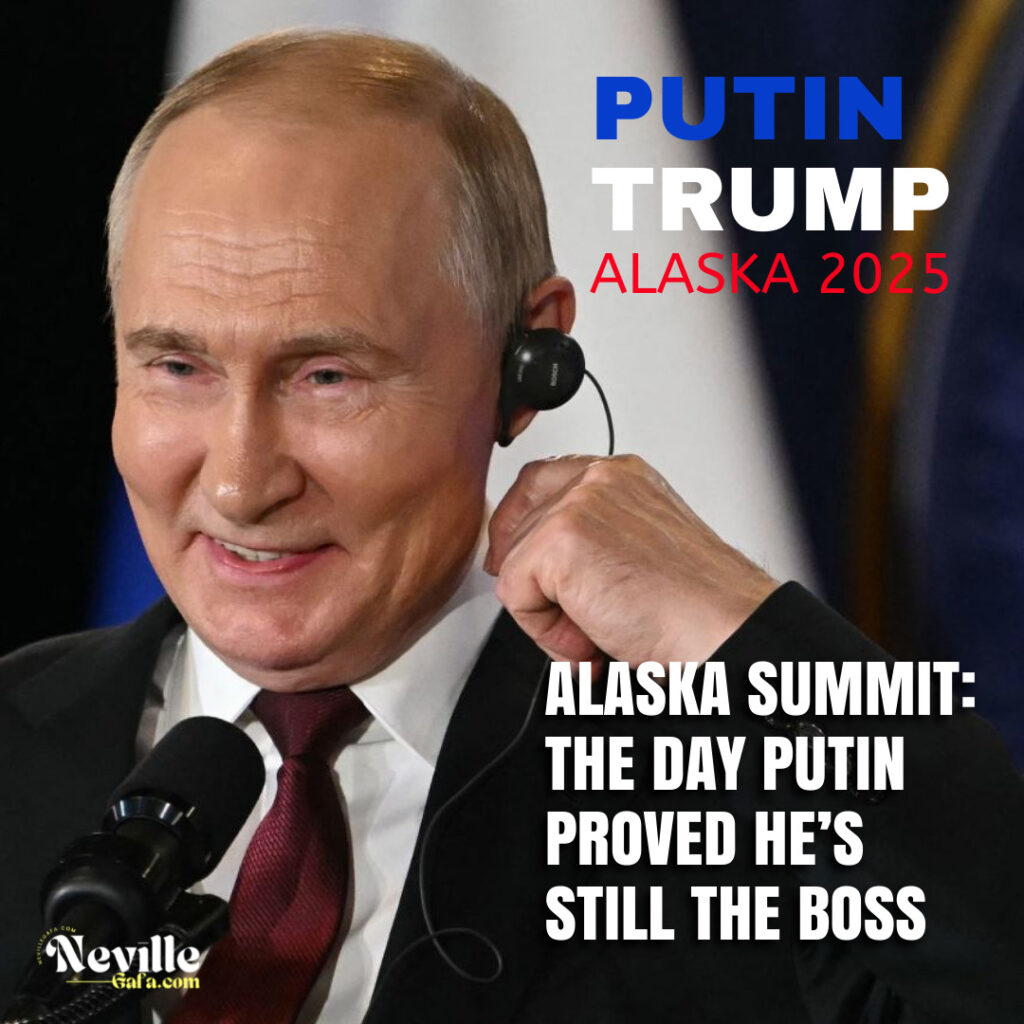For three years, Western leaders and media outlets have invested heavily in a single storyline: Vladimir Putin, increasingly marginalized, was a lonely figure on the world stage. The European Union, in particular, has promoted the vision of a weakened Russian leader kept afloat only by empty propaganda.
Yesterday in Alaska, that narrative collapsed.
The much-anticipated summit between Donald Trump and Vladimir Putin did not produce the dramatic agreements the West had been hoping for—but it did produce a political truth impossible to ignore: Putin is not the isolated man described in Brussels and Washington. He is, in Trump’s own words, The Boss.
A Summit That Exposed Power, Not Weakness
Observers expecting concessions from the Russian President were met instead with firmness. Putin refused to give ground, appearing entirely in control of his position from the first handshake to the closing statements. What some in the West expected to be a staged performance of Russian compliance turned into a demonstration of unshakable leverage.
Trump, for his part, tried to coax movement on key fronts, but the chessboard favored Moscow. Any hopes from Washington that Putin would appear desperate for recognition were dispelled in minutes. The Russian President sat—calm, direct, unflinching—while the weight of expectation shifted onto his counterparts.
The EU’s Greatest Narrative Defeat
This outcome was more than a diplomatic disappointment for American negotiators; it was a humiliation for the narrative architects of the European Union. For three years, Brussels and its chorus of loyal figures have cited isolation as their ultimate weapon. Cut off Putin, they said, and he will weaken. Push him into a corner, and he will shrink.
Alaska demolished that illusion. The picture that emerged was not a cornered man but a commanding leader. Putin walked away without granting concessions, his image of control strengthened rather than diminished. The “lonely Putin” story has not just cracked—it has shattered beyond repair.

Vladimir Vladimirovich
“The Boss” Label Becomes Reality
When Donald Trump called Putin “The Boss,” critics scoffed and dismissed it as flattery. But Alaska made it clear that Trump’s remark contained something essential. Regardless of whether his opponents like it, Putin remains the most decisive, strategic, and unyielding player on the stage.
This reality now forces a reckoning. Western elites can no longer credibly market the idea of Putin’s weakness when each high-profile summit reinforces his authority. The label “The Boss,” initially tossed around as a political jab, has hardened into a defining truth.
Winners and Losers
– Winner: Vladimir Putin – He leaves Alaska stronger, not weaker. His refusal to be boxed in proves he continues to dictate strategic narratives.
– Loser: The European Union – Their portrayal of Putin as fragile lies in shambles. For those who styled themselves as custodians of Western strength, this is an image-crushing defeat.
– Trump: Mixed Result – He engaged eagerly, but his inability to extract visible concessions highlights Moscow’s resilience. Yet, his framing of Putin as “The Boss” now looks less like flattery and more like foresight.
The Takeaway: Not Isolated, But Commanding
The Alaska Summit will be remembered not for treaties signed or compromises reached, but for optics and perception. And perception matters. What the world saw yesterday was not a desperate, cornered man but a leader fully aware of his standing and strength.
The EU’s greatest weapon—its propaganda image of Putin’s loneliness—has crumbled. What remains is a leader increasingly recognized worldwide for exactly what he is: unshaken, dominant, and firmly in control.
In the end, Alaska confirmed what many suspected and what Trump bluntly stated years ago. In the high-stakes theater of global politics, Vladimir Putin remains The Boss.





